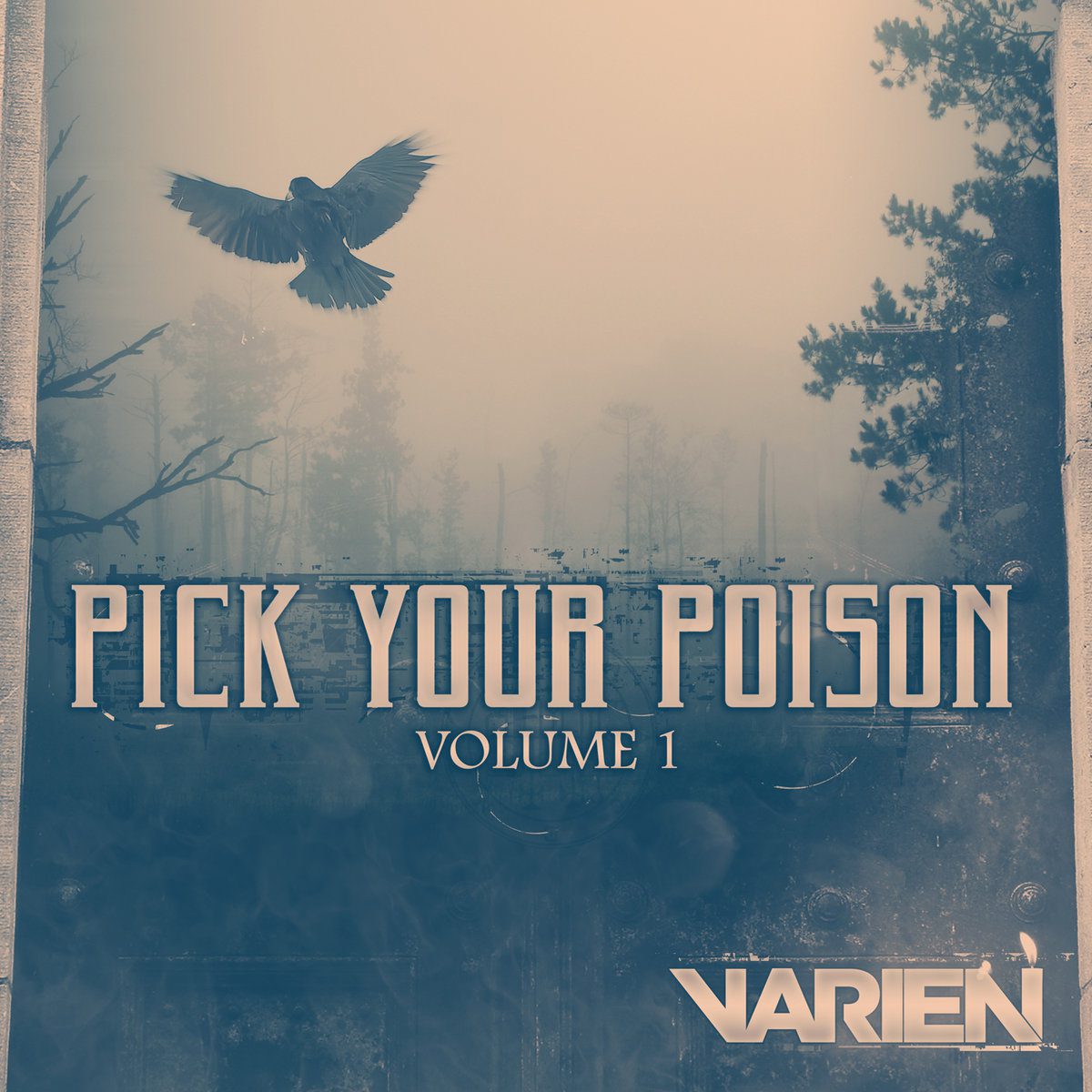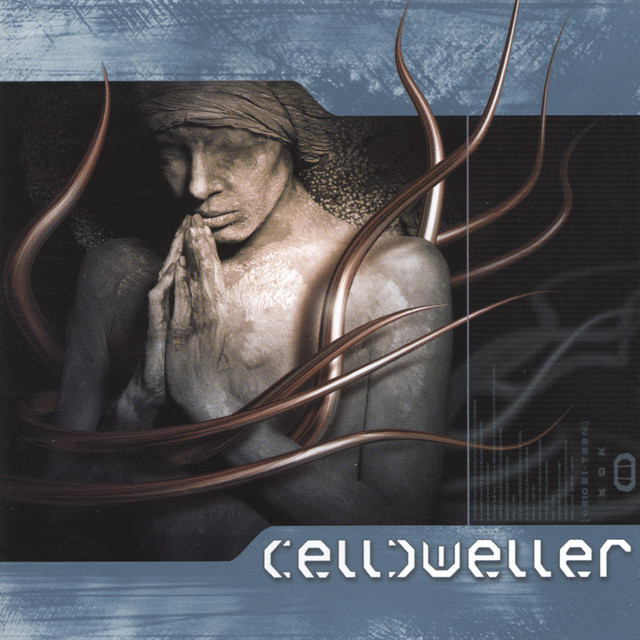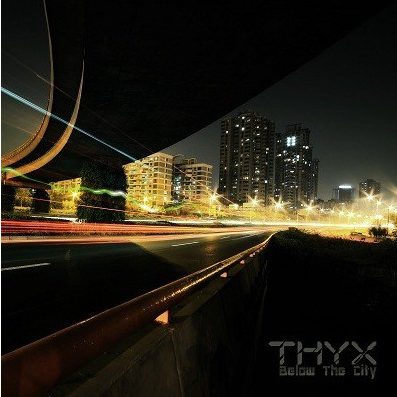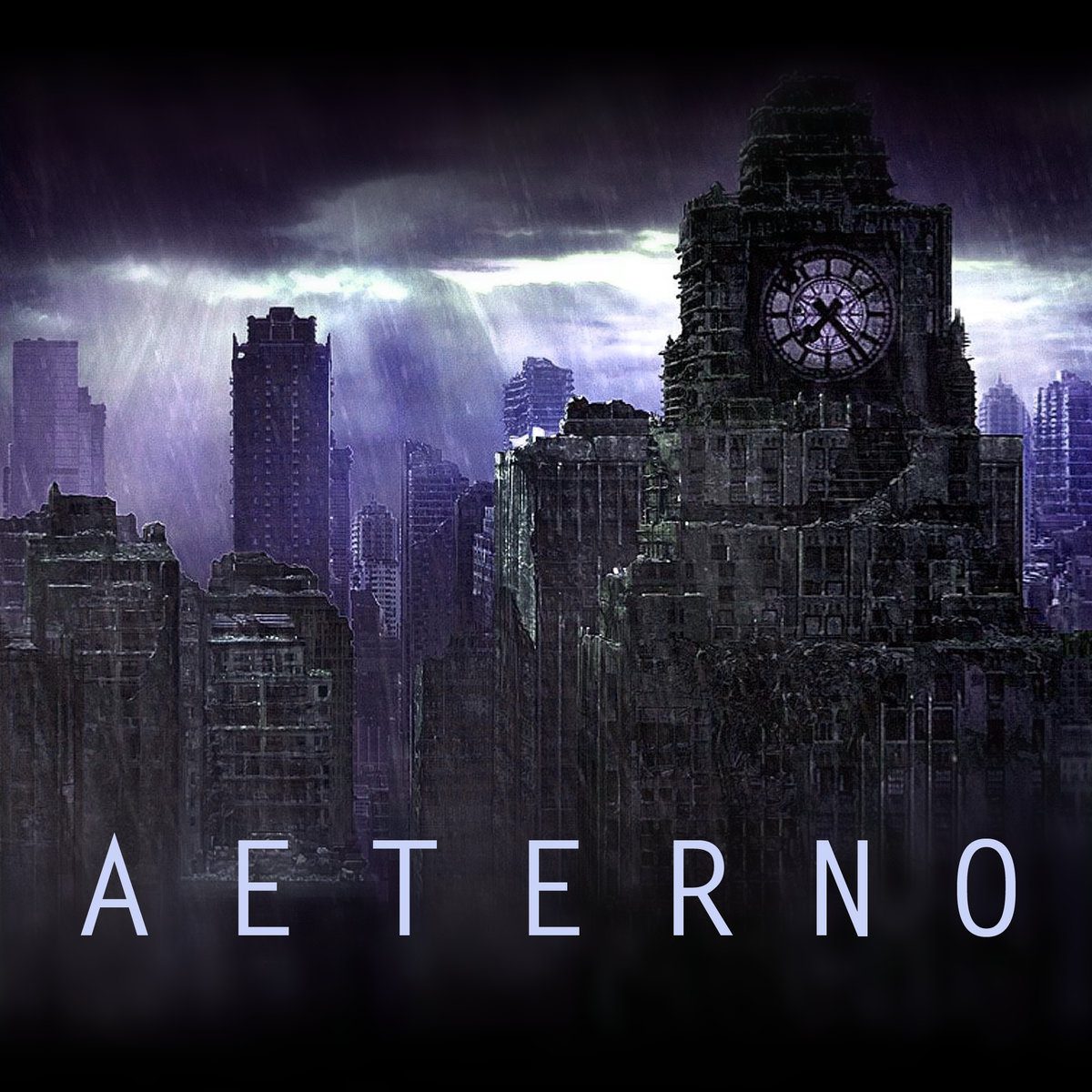Album Links
Bandcamp: https://subterrarecords.bandcamp.com/album/pick-your-poison-vol-01
Soundcloud: https://soundcloud.com/fixt/sets/varien-pick-your-poison-vol-1
Spotify: https://open.spotify.com/album/4zGzLF81ic2CJiOlagTSVe?si=PnhZghijSquetTbLGXeM1A
Youtube: https://www.youtube.com/playlist?list=PLxPSxNNXfbdCo7vJ6lOTF7WSNtZGtMVhS
Introduction: Today, I’m introducing yet another artist to you all, giving my reviewing repertoire a little bit more variety: Varien, a man that I’d discovered quite early on compared to many of the other artists, I’ve reviewed other than perhaps Andy Hunter (who as I’ve said before is the first when it comes to electronic. I’d discovered Varien via Monstercat, a label that a stranger that I’ve completely forgotten had suggested to me, so thanks random person who I’ll never know. I don’t listen to Monstercat as much these days, but you’ve contributed to me expanding my taste a little bit more, eventually leading me to where I am today.
Now, while I know Varien for his work on Monstercat and the song’s he’s left since leaving the label, I still want to take a step back and look at some of the first albums he’d released under the Varien alias (he’d had previous aliases that I don’t listen to as much but I probably won’t be looking at those ones as much). Part of what attracts me to Varien so much is his combination of electronic, my favorite genre, with other styles, including energetic orchestral pieces, acoustic relaxation and today’s focus: cinematic rock.
So, let’s dive into the shortest album I’ve reviewed so far and inspect the various choices of poison Varien has presented.
Varien – Death Call (6.25): There is a cry in the night. An endless high-pitched tone, that never ceases. This is Death’s Call. Accompanied by a cinematic drumbeat during the calm builds of suspense, this call screams through the night eventually leading to harsher sections filled with dubstep basslines, jumping back and forth between full- tempo and half-tempo, keeping any listener on their toes as it beckons to the last point in the drop where the highest tone and the harsh growling basslines synchronize and become one. Twice it calls. Twice I ignore.
I don’t plan on answering this call and I would highly recommend ignoring it for as long as you can, but seeing as this album is all about picking a poison it seems that this call is the force that’s about to present the poisons this album presents. Or perhaps it is a form of poison to choose… Let’s look at the rest.
Varien – Shadow People (7): Do you hear the melody in the darkness. Eight notes. Two similar sets of four rising and falling softly, behind the deep guttural growls in the night. This is a warning of what approaches. The Shadow People. The warning grows more intense as time goes on. A bassline and wavering strings raise the intensity of the call as the Shadow People draw closer and closer…
And then it’s all shrouded in darkness. Everything goes near silent. Only a drowned-out bassline remains struggling to be set free from the clutches of those that lurk in the dark. And if you listen closely… you can hear a heartbeat. But it’s temp and pattern… it isn’t quite human as the title, Shadow People Suggests.
The ominous warning breaks free. Switching back and forth between the echoing drumbeats and the bassline now screaming with intensity, louder than ever in a rushed attempt at foreboding suspense. And right when it reaches its climax, you hear five stabs…
Then nothing.
You have one short minute to escape… before they catch you.
Varien – Scrap Metal (5.25): Scrap Metal doesn’t just appear out of nowhere. It comes from a source. A broken-down car or some other defunct piece of machinery. As long as it’s made of metal and no longer of use, then it can be scrap metal. But it always has a history.
So, what happened in this metal’s history to make it sound so violent?
True, all of the poison in this album is rather aggressive, but an inanimate hunk of metal shouldn’t really be that intense what with the overwhelming dubstep vibe throughout the song. It’s all filled with growls and screams which frankly seem to be a bit of overkill in my book as I’d rather here some of the more cinematic suspenseful portions and while there’s a little bit in this song at the midway point, it’s not quite up to my expectations.
And then a possibility lurking in the back of your head begins to awaken.
Scrap metal must come from somewhere. A broken-down car or some other form of defunct machinery. But that doesn’t necessarily mean that the machinery met its end due to overuse. There’s something out there. Something violent and destructive towards our industrial creations.
And all it leaves behinds are scraps.
Varien – Mother Superior (7): I would agree it’s always a good idea to respect one’s mother. And it seems that Mother Superior is quite demanding of respect. As soon as she appears on the scene, there’s a familiar vibe that you may be getting used to by now, overwhelming suspense created by simple creepy melodies and echoing electronic stabs with some heavy hitting cinematic drums. A clock ticks in the background counting down to the oncoming wrath. And a mother’s wrath is something to be feared.
Mother Superior’s theme hits a lot of the same notes as the Shadow People. That creepy melody and bass heavy suspense leading working together with intense drums into a dubstep drop? Exactly the sense of foreboding that the Shadow People presented. Oh but the wrath here is so much stronger, the growls hit harder and the theme lasts twice as long with a second heavy attack near the end with a slight syncopation to upset the balance before once again hitting the ending of the song with some rapidfire stabs before strangling what’s left of the warnings. It’s possible that Mother Superior is the leader of them, I don’t know how this poisonous world I’m imagining from Varien’s music works down to the letter. Anything’s possible.
Regardless, it’s a good idea to respect your mother, but in the case of this song’s poison, it might be a matter of life or death.
Varien – Welcome to Hell (7.25): Oh, well what a warm welcome to Hell itself. I guess this is a fair location to visit with all the poison that’s been presented in this album. Oh, but Hell is not a place for relaxation. I have no idea why you’d ever expect that looking at any of the religious sources describing the torturous side of the afterlife. Also, the theme of this album does seem to be quite the gritty violent vibe.
Oh, it’s a quiet welcome at first. Just a slight rumble with ever approaching growls echoing in the distance, but when the drums begin and the growls become more prominent, the song takes a slightly more upbeat distorted vibe providing a slight distorted note on every beat. And of course, as it continues on, there’s a climax midway through the song where the basslines reach their full potential with a violent depiction of the horrors that await. I even believe I hear some screams in there at some points, though perhaps the late night is making me delusional.
The song ends just as it began, with the faint growls echoing in the distance as they fade away…
But they’ll be back.
Hell is eternal.
Varien – Technical Difficulties (8): Anyways, after abandoning the absolute most horrifying place in all of existence, it’s time to move on to perhaps the best theme in the entire album. Oh, I’m not even going to try and hide behind some lore this time. I’m mostly just trying to use that to give a little bit of variety and atmosphere to the review, but this song? This one needs some special attention to its music.
Technical Difficulties has absolutely every strength from any of the other songs on this album and even more. Oh, the beginning has those intense wavering strings that began in Shadow People and of course that leads to the intense bass heavy cinematic drumbeat combo that is present in pretty much every build-up in this album. But after that. Every single moment of this song is absolutely unique.
There’s a melody coming from a distant guitar playing off in the middle of all the calm ambience, providing a different strangely soothing flavor foreign to the rest of the album. And the strings do a great job of building up a bit of suspense towards the climax of this song. But unlike the other final drops. This song instead opts to just play a bassline in the background while still focusing on the guitar melodies and strings for the main forefront. It’s actually a beautiful refreshing change of pace with some good drumbeats mixed in there. Making it one of the best songs on the album.
Varien – The Sickness (6.5): It’s no surprise that since we’re about two thirds through this album of poison that the sickness is starting to creep in. Poison isn’t the healthiest substance. Oh, and the suspense as this sickness seeps into the body is absolutely overwhelming. Just listen to those quiet voices of longing underlying the bassline and the drums at the beginning there, the moans of those dying from a disease that they’ve inflicted upon themselves. A slightly discomforting bassline rumbles growing ever closer as the drums, as always, build the short song to its climax as the sickness truly begins to take hold. Drums of war. An unbeatable war.
The distorted sickness takes a form of a sick bassline that dominates the song by playing long dark notes that display the cinematic dubstep vibe that infects this entire album. The note sometimes holds strong, and yet other times, it begins to waver, showing perhaps a weakness. Perhaps it can be cured. Or perhaps it’s merely strangling the body from the inside out before leaving the song ending the song climatically.
Does the end represent death? Perhaps if it were the last song on the album, but there is more to come.
Varien – Future Funk (7.75): This is the one of the only songs that could compete Technical Difficulties for the top spot on this album (it loses in the end, but it still stands out among the rest). And so, made up lore is once again not required to make the review of this particular song stand out among the rest. Oh, I could try to make up some story about some sort of funky time travel, but I can’t seem to make the edginess fit with that anyway. But what I can talk about is the variety that this track holds.
The first thing I want to highlight is the drum variety this song has over the rest of the songs. Most of the other songs have just the cinematic stabs in the build-ups and a steadier drumbeat, usually at a dubstep tempo, when it comes to the drop. However, this song explores a bit further than that simple pattern. At first, it starts following the two, section trend that the majority of the album uses. Cinematic drums with an unsteady tempo at first, followed by a half-time section at the drop (though interestingly this drumbeat is actually combined with the irregular cinematic drumbeat instead of outright abandoning in it). The second half is where the true variety comes in though. It starts out with the cinematic drums again at first, but then it introduces a new syncopated drumbeat (And if anyone knows me, they know I love syncopation). The syncopation adds a new groove that’s a bit more unique compared to the rest of the album, and it’s allowed to breathe for a second, without the cinematic drums getting in the way (though said drums do come in again a bit later). Long story short, the drumbeat is constantly changing and developing over the course of the entire album.
But the despite taking an entire paragraph, the drumbeats aren’t all that’s special about this song. Obviously a song called Future Funk has to have a bit of a groove to it. And that groove is created by the melodies and basslines that are scattered throughout this track. The most noticeable of these is the synth smoothly transforming between several different notes, creating a groove that surprisingly fits quite well with the more cinematic style this album presents. And under that melody, there’s plenty more, an atmospheric vocal sample that serves as the backbone of the track and a wavering simpler synth adding a secondary underlying melody to compliment the first And in the second half, a new bassline is introduced with a low growling arp accentuating that groovy funk to the maximum.
I haven’t quite decided whether or not I prefer this over Technical Difficulties, but both are incredibly solid additions to this album that easily stand out above the rest.
Varien – Schizophrenia (5.5): The bass heavy stabs at the beginning, overwhelming the forefront of the song during its stay. And yet, everything else sounds distant, a whisper of an arp, a slight build of chaotic strings in the background, and thunderous drums that leave a wavering cry in their dust. Everything in this song is so distant. Except for the bass. The bass. It’s absence in the middle third is welcome, but the song spends much of the time slamming the bassline over the rest of the track, making every other element of this song’s identity seem distant, almost non-existent.
What is left of the song when the harsh bass overwhelms every other piece of its identity?
What is left of you when harsh thoughts overwhelm every other piece of your identity?
Varien – Meteorite (7.75): As the album comes to a close, all that remains is Meteorite: the ultimate mysterious element of the world I’ve attempted to imagine for this album. Perhaps not quite as horrifying as the Shadow People and their Mother Superior. Perhaps not as existentially terrible as Death’s Call that welcomes you to hell. Perhaps not as dangerous as a creature that consumes metal, or a disease that consumes the mind. But Meteorite remains to be the most mysterious of the bunch. Sure, I couldn’t really think of much of an imaginative recreation of Technical Difficulties or Future Funk, but this is different.
Looking at the surface, yeah, a meteorite crashed. It happens sometimes. But like I said, there’s an overwhelming aura of mystery. Just listen to that piano melody at the beginning. it starts out soft, distant, combined with what sounds to be a slightly distorted guitar that muffles the simple melody. But as the melody approaches closer and closer to the core of this song, the meteorite that had shattered the surface of this world, the piano becomes stronger, nearly overwhelming the bass as the drums walk closer and closer to the otherworldly wreckage.
And then the song explodes into energy, the bassline once again taking the forefront, but unlike in Schizophrenia, the bassline doesn’t completely overtake the song. In fact, the piano is really still thee star of the song, increasing the mystery as it keeps up well with the more intense elements, as we get closer and closer to what appears to be a meteorite. But the guitar and bassline suggest that this isn’t just a hollow husk of extraterrestrial rock. There is something more here. You can hear it, even as the song once again fades into its previous calm demeanor. A subtle bassline stuttering along with the ambience echoing from the drums.
And then, for this album’s finale, the final climax of the song depicts an increase in intensity unlike any other on this album. The melody has been cut short, unable to keep up with the ever-accelerating tempo, a combination of the echoing drums from earlier and the rolling bassline that had previously appeared at the midpoint climax. But there’s no more time for the drums to echo. No more time for the bassline to catch a breath as it rises.
There’s no more time.
Conclusion: Pick Your Poison Vol 1 is a bit on the shorter side of the albums, seeing as ach of the song is no longer than a movie trailer (for good reason). Ten songs, seventeen minutes. If you read this review at a slow enough pace, you could actually finish listening to the album before reaching the end of this review. It’s not cream of the crop for Varien. It’s in fact the first album I’ve reviewed so far where none of the songs have reached an 8 or higher. Now, that doesn’t make it a bad album. None of the songs are bad per se. It’s a shorter experience so it doesn’t need to be exceptionally solid. It’s just a quick exploration into the harsher more cinematic side of Varien. There are a few small duds, but none of them are atrocious enough or long enough to ruin the experience of the album.
Final Score: (6.75/10)




